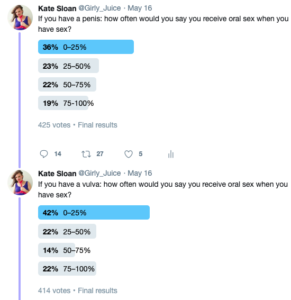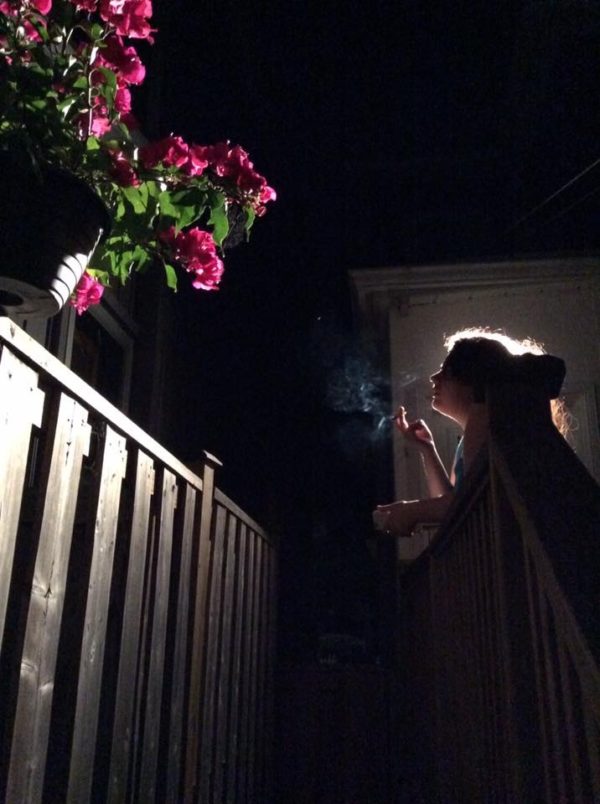
One minor silver lining of this hellish year: not being able to go to places I’d normally go, or do things I’d normally do, left me with a lot of extra time. Some of that time was funnelled into video games (look, Tom Nook needed my help, okay?!), and some of it went into reading books instead. I spent many an hour this year stretched out in a hot bath, candles lit and Kindle in hand.
So far in 2020, I’ve read 31 books – here’s the full list, if you’re interested – but these 8 really stand out as my faves of the year. Thanks to my Kindle’s highlights functionality, I’ve also been able to pull a favorite quote from each, to give you a little taste. Read on and read up, bookworms!
The Mind’s Eye by Oliver Sacks
I had heard stories of people living in rain forests so dense that their far point was only six or seven feet away. If they were taken out of the forest, it was said, they might have so little idea or perception of space and distance beyond a few feet that they would try to touch distant mountaintops with their outstretched hands.
I went through a major Oliver Sacks phase in the early part of this year. Mr. Sacks, if you don’t know, was a British neurologist who also happened to be a magnificent and evocative writer. Typically, his books are filled with eloquent case studies about actual people he’s helped, usually gathered around a particular theme. The Mind’s Eye is themed around all things visual, and profiles people with various disturbances in the visual sectors of their brain, like face-blindness and neurologically-rooted color-blindness.
In the latter sections of the book, Sacks also tells the story of his own loss of stereoscopic vision when a tumor deprived him of the use of one eye. His books are always fascinating to me as someone who is nerdy about oddities of the brain, and this was one of my favorites I’ve read.
Station Eleven by Emily St. John Mandel
“Has anyone been informed? Who do we call?” “I should call his lawyer,” the producer said. This solution was inarguable, but so depressing that the group drank for several minutes in silence before anyone could bring themselves to speak. “His lawyer,” the bartender said finally. “Christ, what a thing. You die, and they call your lawyer.”
Soon after the coronavirus became an international news story, I started looking into books about pandemics, because sometimes wading right into your fears and worries is the best way to cathartically slough them off. One of the most-recommended pandemic novels on Twitter back in March was Station Eleven, a thrilling story that starts in a Toronto theatre on the opening night of a Shakespeare play, and ends many years later, by which time the world’s population has been decimated and society entirely restructured.
This book felt healing and reassuring to read, because so much of it is about the ways that art, music, theatre, and literature create opportunities for hope, optimism, and connection, even in irrefutably terrible times. It was also just a genuinely fun read, full of unexpected twists, memorable imagery, and well-drawn characters.
The End of Policing by Alex S. Vitale
By conceptualizing the problem of policing as one of inadequate training and professionalization, reformers fail to directly address how the very nature of policing and the legal system served to maintain and exacerbate racial inequality. By calling for colorblind “law and order” they strengthen a system that puts people of color at a structural disadvantage and contributes to their deep social and legal estrangement. At root, they fail to appreciate that the basic nature of the law and the police, since its earliest origins, is to be a tool for managing inequality and maintaining the status quo.
I reviewed this book just after reading it, so I won’t restate myself too much here. I’ll just say that this book lays out argument after argument for defunding the police in a way that is clear, cogent, and persuasive. If you’re on the fence about this issue – or even if you still think the police are an upstanding institution, despite so much evidence to the contrary – I think this book would be particularly informative and helpful for you.
Black Buck by Mateo Askaripour
Reader: Wally Cat is many things, but a fool he is not. What he told me that day was a sales lesson in disguise. The quality of an answer is determined by the quality of the question. Quote that and pay me my royalties.
This brilliant debut novel follows a young Black man as he gets plucked from a low-paying job and hired as a salesman at an almost entirely white startup. It touches on racism, and confidence, and capitalism, and the scarcity of opportunity.
It’s also one of the funniest books I read all year, easy. The voice Mr. Askaripour crafted for his protagonist is sharp and witty, friendly yet dark, goofy but sincere. This was a pleasure to read from start to finish.
Girl on the Net: How a Bad Girl Fell in Love by Girl on the Net
It’s a bit hard to put sex to one side when I’m talking about romance: to me romance has usually been a route to sex, like a Valentine’s card with surprise dick joke inside. A love story that doesn’t involve the odd knee-trembling grope or sticky-lubed handjob feels as incomplete as breakfast without coffee.
The sex blogger known as Girl on the Net is a legend – easily one of the best writers in my genre, always smart and often hilarious. This book tells the story of one of her long-term relationships, with a man who luckily happened to be pretty chill about the whole “sex blogger” thing. (Trust me, this is a surprisingly difficult quality to find in a man.)
It’s equal parts romantic and sexy, stuffed with life lessons that’ll help you both in and out of the bedroom. And it’s all written with GotN’s signature wit. If I’d been able to take public transit this year, I’m sure I would have turned some heads by laughing too hard on the subway while reading this.
Polysecure: Attachment, Trauma and Consensual Nonmonogamy by Jessica Fern
I will not lie: the work to heal our personal traumas and attachment wounds and the effort needed to build polysecure relationships are not easy. It takes courage, devotion and perseverance, but please trust me in knowing that it is worth it. As we heal our past, we open up new possibilities for our future.
This year I became increasingly aware of the ways my trauma history impacts the way I feel and behave in my present-day relationships. I took Clementine Morrigan’s online class on trauma-informed polyamory, and I read this book, and between those two things + getting a savvy new therapist, I feel that I’m firmly on the path to healing, though there is likely still a long way to go.
In this book, psychotherapist Jessica Fern (who is totally charming – she guested on a Dildorks episode) lays out the ways that attachment wounds can complicate non-monogamy, and what can be done about it. This is absolutely a must-read for anyone who wants to be non-monogamous but finds themselves continually triggered or re-traumatized by their forays into that relationship style.
Ace: What Asexuality Reveals About Desire, Society, and the Meaning of Sex by Angela Chen
I understood for the first time that it is possible to lack the experience of sexual attraction without being repulsed by sex, just like it is possible to neither physically crave nor be disgusted by a food like crackers but still enjoy eating them as part of a cherished social ritual. Being repulsed by sex is a fairly obvious indication of the lack of sexual attraction, but a lack of sexual attraction can also be hidden by social performativity or wanting (and having) sex for emotional reasons—and because the different types of desire are bound together so tightly, it can be difficult to untangle the various strands.
I cannot say enough good things about this book. It is a vitally important contribution to the existing body of work on asexuality. In her clear, incisive prose, Angela Chen explains asexuality and its various facets and forms, discusses some of the biggest issues facing the asexual community today, and hypothesizes on useful lessons non-asexuals can learn from their ace peers.
Even though I’ve identified as being on the ace spectrum for a while now, there’s a lot in this book that I had never really thought about before, or at least hadn’t thought about with as much clarity as Ms. Chen brings to the table. It’s really a must-read for anyone who is interested in asexuality, from any angle.
Sex with Presidents: The Ins and Outs of Love and Lust in the White House by Eleanor Herman
There appears to be little difference between the thrills of seeking public power, with crowds of adoring fans, to seeking pubic power, with an adoring audience of one. The same compulsions that send a man hurtling toward the White House can also send him into a foolhardy tryst with a woman. High political office and dangerous sex are, in fact, all about hubris and power.
I just finished this the other day, and it was an absolute delight. Ms. Herman – who has previously written books on the sex lives of queens, kings, and Vatican bigwigs – has amassed a veritable treasure trove of absurd stories about salacious presidential misadventures. I know more about Lyndon Johnson’s penis and John F. Kennedy’s favorite sexual position now than I ever dreamed I’d learn.
Although she’s not too heavy-handed about it, Ms. Herman makes it clear throughout the book that systemic sexism – and often, men being outright cruel to women they claim to love – has played a huge role in presidential sex scandals. It’s hard to even grasp the number of powerful men who have cheated on their wives, fucked over their mistresses, abandoned their children, lied to the nation, etc. etc. etc. This is mainly a book about shitty men, but it’s also a book about strong women who deserved way better treatment than they ever got.
What books did you love this year?



